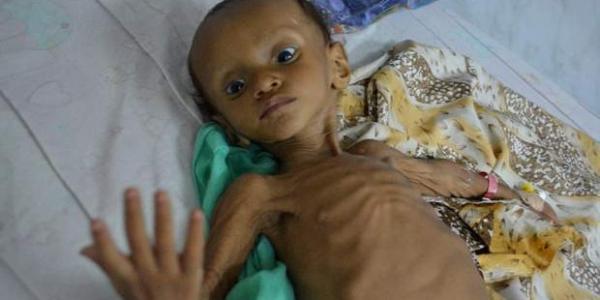Stakeholders in the nutrition agenda have called for more investment to address the triple burden of malnutrition in the country.
Speaking during the first day of the symposium, those attending the three-day conference said the challenge is characterized by co-existence of undernutrition exhibited by stunting, wasting and underweight; micronutrient deficiencies; and over nutrition demonstrated by overweight and obesity and associated diet-related non-communicable diseases (NCDs).
Speaking during the first-ever Maternal, Infant and Young Child Feeding Nutrition Symposium, Acting Director General of health Dr. Patrick Amoth noted that malnutrition is an impediment to the progress towards achieving the global, regional and national social and economic development goals including Kenya’s Vision 2030.
“In Kenya, malnutrition is a leading cause of infant and child morbidity, mortality and hospital admission, a situation that urgently requires our interventions as stakeholders.” Amoth observed. He said perennial drought particularly in arid and semi-arid counties has adversely affected the most vulnerable groups especially, children under five years of age, pregnant and lactating women resulting in increased risk of malnutrition, illness and mortality.
“The Ministry in collaboration with the affected counties has activated the nutrition response which include supply of the nutrition lifesaving commodities, nutrition screening and integrated outreaches,” said Dr. Amoth.
The MIYCN Symposium whose theme is “Promoting optimal Maternal Infant and Young Child Nutrition for improved child growth, development and survival” has brought together stakeholders from both the government and non-governmental organizations, providing a platform for experts to reflect on the status of child malnutrition in Kenya.
Martha Nyagaya, Country Director, Nutrition International, told the forum that there is a need to build resilient systems for recovery.
“It is not just short-term technical interventions, we need to review health systems, food systems, education, social protection, WASH, and cross cutting themes. These thematic areas are a reflection of how multi-sectoral the issue we are dealing with is. In fact, beyond sectors, there is need for sustainable mobilization of resources, coordination, policy, surveillance.” She said.
According to Abiud Omwega from UNICEF Kenya, the symposium provides an opportunity for the country to reflect on the progress of the actions made to improve the nutrition status of children in Kenya.
“I challenge us to use this symposium to identify evidence based and scalable interventions to improve children’s diets. Not every strategy works but together we can develop practical solutions.” Observed Omwega.
The Ministry of Health has provided a strong policy and legislative framework for improving Maternal, Infant and Young Child Nutrition. Further, the Ministry has disseminated policies, guidelines and legislations to the counties in order to ensure standardized quality health services.


